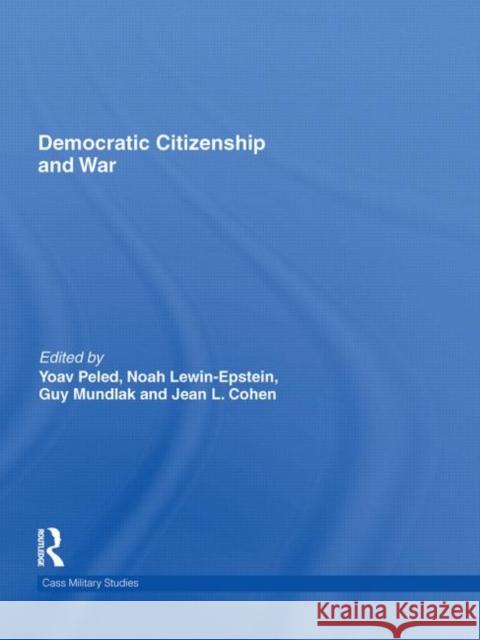Democratic Citizenship and War » książka
Democratic Citizenship and War
ISBN-13: 9780415552240 / Angielski / Twarda / 2010 / 256 str.
Democratic Citizenship and War
ISBN-13: 9780415552240 / Angielski / Twarda / 2010 / 256 str.
(netto: 213,28 VAT: 5%)
Najniższa cena z 30 dni: 196,40
ok. 16-18 dni roboczych.
Darmowa dostawa!
This edited volume explores the theoretical and practical implications of war and terror situations for citizenship in democratic states. Citizenship is a key concept in Western political thought for defining the individual's relations with society. The specific nature of these rights, duties and contributions, as well the relations between them, are determined by the citizenship discourses that prevail in each society. In wartime, including low-intensity wars, democratic societies face different challenges than the ones facing them during peacetime, in areas such as human rights, the status of minorities, the state's obligations to its citizens, and the meaning of social solidarity. War situations can affect not only the scope of citizenship as an institution, but also the relations between the prevailing discourses of citizenship and between different groups of citizens. Since 9/11 and the declaration of the 'war on terror', many democracies have been grappling with issues rising out of the interface between citizenship and war. This volume examines the effects of war on various aspects of citizenship practice, including: immigration and naturalization, the welfare state, individual liberties, gender relations, multiculturalism, social solidarity, and state - civil society relations. This book will be of great interest to students of military studies, political science, IR and security studies in general.











